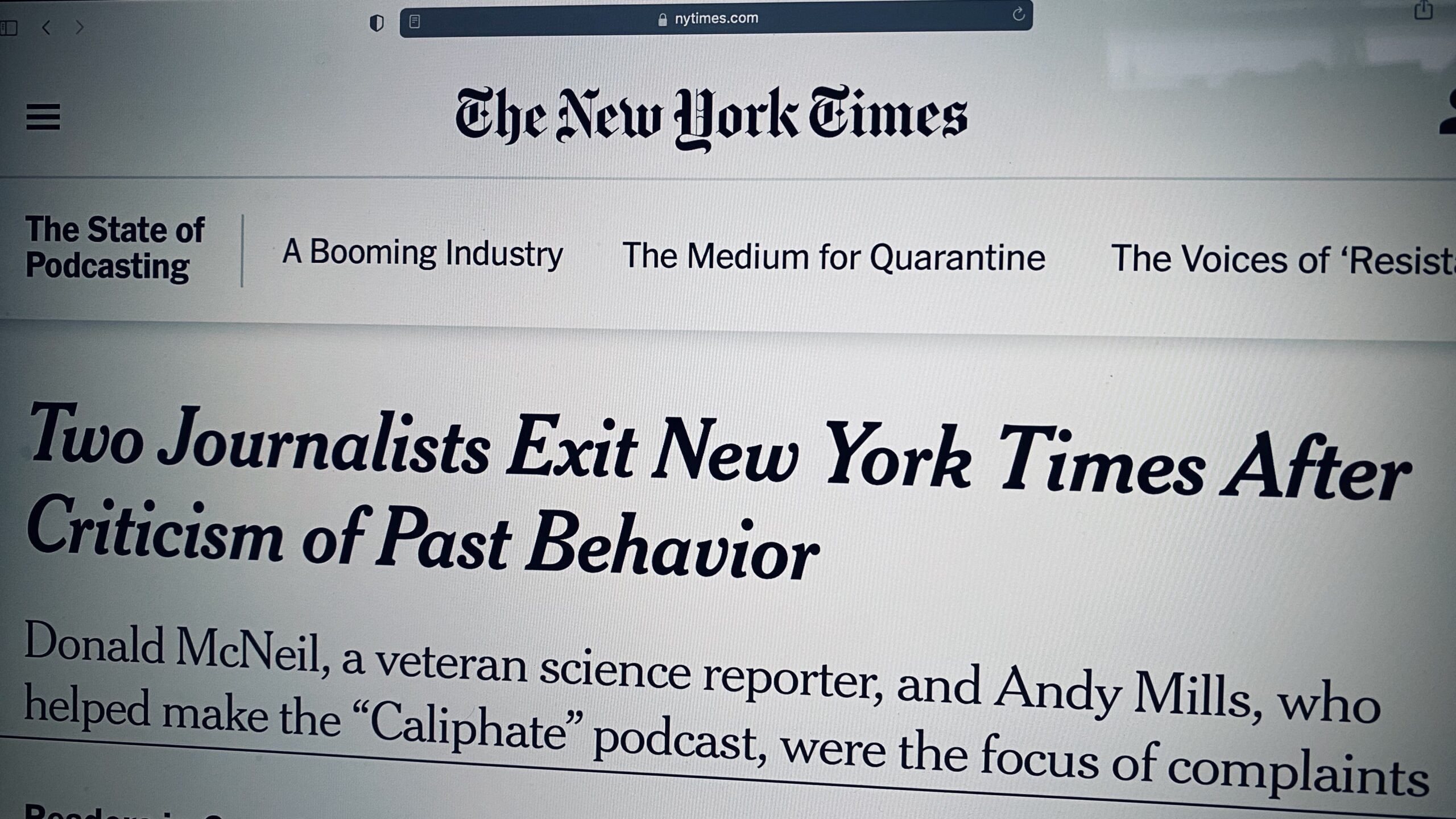Yesterday Donald McNeil published a follow up post about his firing from the New York Times on Medium. He blames a culture of hypocrisy and elitism and compares his forced apology to the controlling power of Chairman Mao.
The Firing of Donald G. McNeil from the New York Times
I’ve only been a fan of Donald McNeil’s reporting since I first heard him on The Daily podcast last spring when the first wave of the pandemic was just getting rolling. McNeil spoke matter-of-factly and provided some much needed guidance in a world full of speculation and fear. He explained how testing, isolation, and contact tracing were the three tools that were going to get us through this mess. From that point on whenever McNeil was on the podcast I would parrot the information to friends and coworkers, and I felt like I knew what I was talking about concerning the pandemic. It was more than just great reporting — his reporting was full of information and history. They don’t have a prize for this, but they should. It’s reporting that’s useful, timely, and life-saving.
Last month I read about The New York Times’ decision to fire McNeil. Apparently, he had used the N-word while talking with students on a New York Times field trip for wealthy American teens in Peru. His statement:
“I was asked at a dinner by a student whether I thought a classmate of hers should have been suspended for a video she had made as a 12-year-old in which she used a racial slur. To understand what was in the video, I asked if she had called someone else the slur or whether she was rapping or quoting a book title. In asking the question, I used the slur itself. I should not have done that. Originally, I thought the context in which I used this ugly word could be defended. I now realize that it cannot. It is deeply offensive and hurtful. The fact that I even thought I could defend it itself showed extraordinarily bad judgment. For that I apologize.”
Is it just me or does this apology sounds like it was written by lawyers?
Anyway, more details started to leak out. It was strange that the Times also let go Andy Mills — notorious drink dumper and misogynous Caliphate podcast dude — on the same day. You can’t help but wonder about the timing. What does one have to do with the other? We may never know.
Last week McNeil responded to the students’ accusations in four parts on Medium. It took me awhile to get to all four parts but it’s recommended reading, this guy knows how to write:
After reading his side of the story, and there may be more the story that even McNeil doesn’t realize, but if we take him at his word that this is what happened, I’m left thinking that the Times made a huge mistake and I look forward to hopefully hearing from McNeil at his next gig.
The Whistleblower Knows How to Write
Jane Rosenzweig, writing for The New York Times:
“I can’t tell you what’s going to happen to his blockbuster complaint about the president’s behavior, but I can tell you that the whistle-blower’s college writing instructor would be very proud of him.”
As a writing instructor myself for 20 years, I look at the complaint and see a model of clear writing that offers important lessons for aspiring writers”.
Rosenzweig’s breakdown makes me want to use this an illustrative guide in my classroom.
Open Source Online University Coming Soon
Israeli entrepreneur, Shai Reshef, plans to combine the world’s open source educational material and create the world’s first free global university*.
“The open-source courseware is there, from universities that have put their courses online, available to the public, free,” Mr. Reshef said. “We know that online peer-to-peer teaching works. Putting it all together, we can make a free university for students all over the world, anyone who speaks English and has an Internet connection.”
Reshef plans on starting things small. Starting this fall, 300 students will enroll in bachelor’s degrees in business administration and computer science.
*Free as in open source, not free as in beer. However, it doesn’t look like it will be particularly expensive. From the article: “students would pay only nominal fees for enrollment ($15 to $50) and exams ($10 to $100), with students from poorer countries paying the lower fees and those from richer countries paying the higher ones.”

